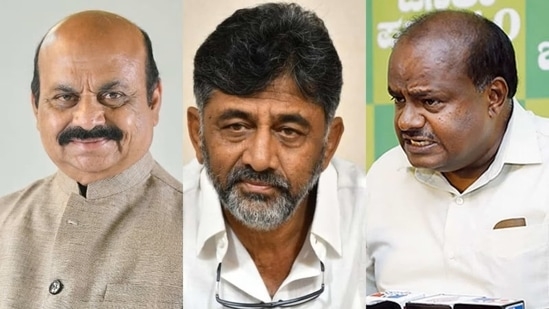Lessons From Karnataka
Total Views |
The highly anticipated election of Karnataka is done and dusted. BJP has failed to break the tradition of voters choosing alternative parties in each election. While BJP has been able to break this cycle in most of the other states, why has it failed in Karnataka? This is the question that the national leadership of BJP. I have not said, Karnataka leadership because it knew something is wrong. It seemed directionless but it did not wake up; and let the things get out of its control.

We are no one to teach lessons to BJP leadership which has been steamrolling opposition and growing from strength to strength breaking new grounds all over India. It has dominated the Indian political scene for nine years now with Modi ji having a popularity that surpasses any other Indian leader’s popularity post independence.
However, as a person who has spent 60 years in social life and how has been studying politics closely and analysing it in public for nearly 16-17 years, I am putting down a few bullet points down for BJP for whom five generations have toiled, as Modi ji puts it, to bring it to this position. What I am putting down is not applicable to all. Some leaders follow these points anyways. But, more and more leaders need to be reminded.

We are no one to teach lessons to BJP leadership which has been steamrolling opposition and growing from strength to strength breaking new grounds all over India. It has dominated the Indian political scene for nine years now with Modi ji having a popularity that surpasses any other Indian leader’s popularity post independence.
However, as a person who has spent 60 years in social life and how has been studying politics closely and analysing it in public for nearly 16-17 years, I am putting down a few bullet points down for BJP for whom five generations have toiled, as Modi ji puts it, to bring it to this position. What I am putting down is not applicable to all. Some leaders follow these points anyways. But, more and more leaders need to be reminded.
- A ruling party’s pronouncements and its deeds must match.
- Like justice, governance is not just to be delivered, it should be seen to be delivered. We have seen the success of this idea in Uttar Pradesh on the very day Karnataka results came out.
- First, second and middle rung leaders should be open to feedback and suggestions. They should be available to the worker - at any level. This is the person who has brought victory to the party, not just a leader.
- Arrogance of power is natural. Leaders must control it. In a democracy, you are not here forever. Arrogance puts your workers and voters off.
- You are in government because of the party organisation, not the other way round. So, do not treat yourself as above party and organisation. The same worker, the cadre that sent you there, can pull you down by mere indifference.
- Find time for your colleagues and well wishers. Showing off your busy-ness is a bad idea. If Modi ji can find time for people from remotest parts of Bharat and outside, surely you can make time for your cadre and well wishers. Cadre comes first - it is forever, well wisher are not.
- Help solve cases brought to you by your cadre and workers. Find ways to solve them. Don’t find excuse. Because the same person will get job done in your government through other means and then you will look silly.
- Be proactive, not reactive. Be a thinking leader. Modi ji is the best example. He is always a step ahead in new ideas. He can create castles out of brickbats thrown at him.
- Communication is a crucial part of your delivery. Engage or find people who can help you communicate better and let people know about your work.
- Don’t show disdain for intellectuals, specially those who are rooted to the ground. Just because you are in power today, does not make you smart and a know all.
- Bureaucrats can survive by not acting, because not taking action can save a bureaucrat’s career, but not a political leader’s. If you are committed to social welfare your senior leaders will support you, be sure. By not acting, you may rise to your level of inefficiency, but not to the top.
- Politics teaches your cynicism. But, try to be straight forward and honest in dealings with some people. Most of them will turn out to be good. Don’t play politics with everyone. Some relations are above politics and they will hold you in good stead when it comes to crunch.
- Politics is not a business or a profession. Though this sounds cliche and most new joinees treat it so. You will succeed better if you treat it as a service first.


